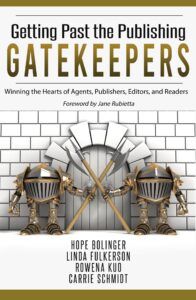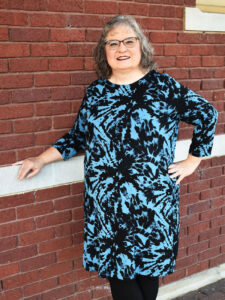by Linda Fulkerson @lindafulkerson)
You’ve finished your novel, passed it around the Beta reader circuit, received feedback from contests, revised and self-edited ad nauseam, and completed the final read-through. Your story sings! Now what?
It’s obviously time to submit. So, the better question is “Now where?”
The path to publication forms a Y that leaves would-be authors two choices: traditional or self-publishing. Each of those roads breaks off into side streets. Self-publishing includes a myriad of options, from the total do-it-yourself project to assisted self-publishing to paying a vanity press to do everything for you (buyer beware). Traditional publishing includes two main routes—large and small presses.
Large publishing houses offer prestige, sometimes large advances, broad distribution, and often a comprehensive marketing program. At the top of the “downside” list for large publishers is competition. If you’re a don’t-tell-me-the-odds person, skip the rest of this sentence, because the chances of landing a contract with a large publisher hover around 1 percent. As in 99 percent of submissions are rejected. Yikes!
Add two more items in the “cons” column for large publishers—lead time and the fact that almost no large press will accept unagented submissions. And getting a good agent is, well, hard.
Where does that leave the ready-to-be-published writer? Before you pull out your credit card and click “Buy Now” at a vanity press website or stuff your manuscript in a filing cabinet, consider submitting to a small publisher.
What is a small publisher?
Small publishing houses typically have less than 250 titles in print and have an annual revenue of less than $50 million. Small publishers have grown with the advent of print-on-demand technology. Today, about 40 percent of published books are produced by small presses, making up over 35 percent of the publishing industry’s market share.
The odds of landing a contract with a large publisher hover around 1 percent. @lindafulkerson #writing #publishing Share on XMyths about small publishers
Small publishers are for authors who can’t get an agent. This simply isn’t true. In fact, several authors at Scrivenings Press, the small publishing company I own, are represented by some of ACFW’s top agents. There are only so many agents out there, and they have limited spaces for new clients. Small publishers can help fill the gap.
Small publishers don’t produce good books. Again, not true. Of course, quality varies from publisher to publisher, but most of the small publishers I know from within the Christian publishing community strive for quality. Many of our books have won or finaled in prestigious contests, including the Realmies, Selahs, Carols, and more. Each of our titles goes through an in-depth editorial process, including a developmental edit, line edit, and final proof.
What’s it like to work with a small publisher?
At Scrivenings Press, our authors are part of a community, a family. Through our private Facebook group and monthly Zoom author chats, we help each other through brainstorming, cross-promoting, sharing tips, and, most importantly, through prayer and encouragement.
Many small publishers allow authors direct access to the publisher/owner. We know our authors’ names, their struggles, their victories. And I’ve spoken with authors of other small Christian publishers who have had similar experiences.
Space limits me from going into detail about the publishing process, but if you’re seeking publication and have become frustrated with the process, consider submitting to a small publisher. Visit their website. Read their guidelines. Be professional, as you would with a large publisher.
To learn more about Scrivenings Press, visit scriveningspress.com. To learn more about the path to publication, read Getting Past the Publishing Gatekeepers: Winning the Hearts of Agents, Publishers, Editors, and Readers, co-authored by Hope Bolinger, Rowena Kuo, Carrie Schmidt, and myself.
Best wishes in your publishing journey!
 Linda Fulkerson is a publisher, RVer, missionary with Sojourners, author, USMC veteran, wife, and doxie mom. She and her husband Don are blessed with five adult children (ten counting their spouses) and eleven grandchildren. When she and Don aren’t traveling, they reside on a quiet 10-acre plot in central Arkansas.
Linda Fulkerson is a publisher, RVer, missionary with Sojourners, author, USMC veteran, wife, and doxie mom. She and her husband Don are blessed with five adult children (ten counting their spouses) and eleven grandchildren. When she and Don aren’t traveling, they reside on a quiet 10-acre plot in central Arkansas.
